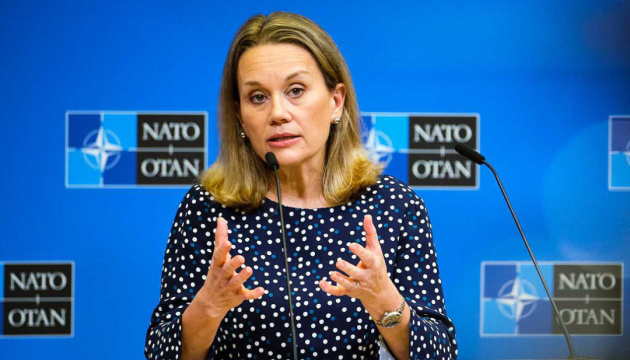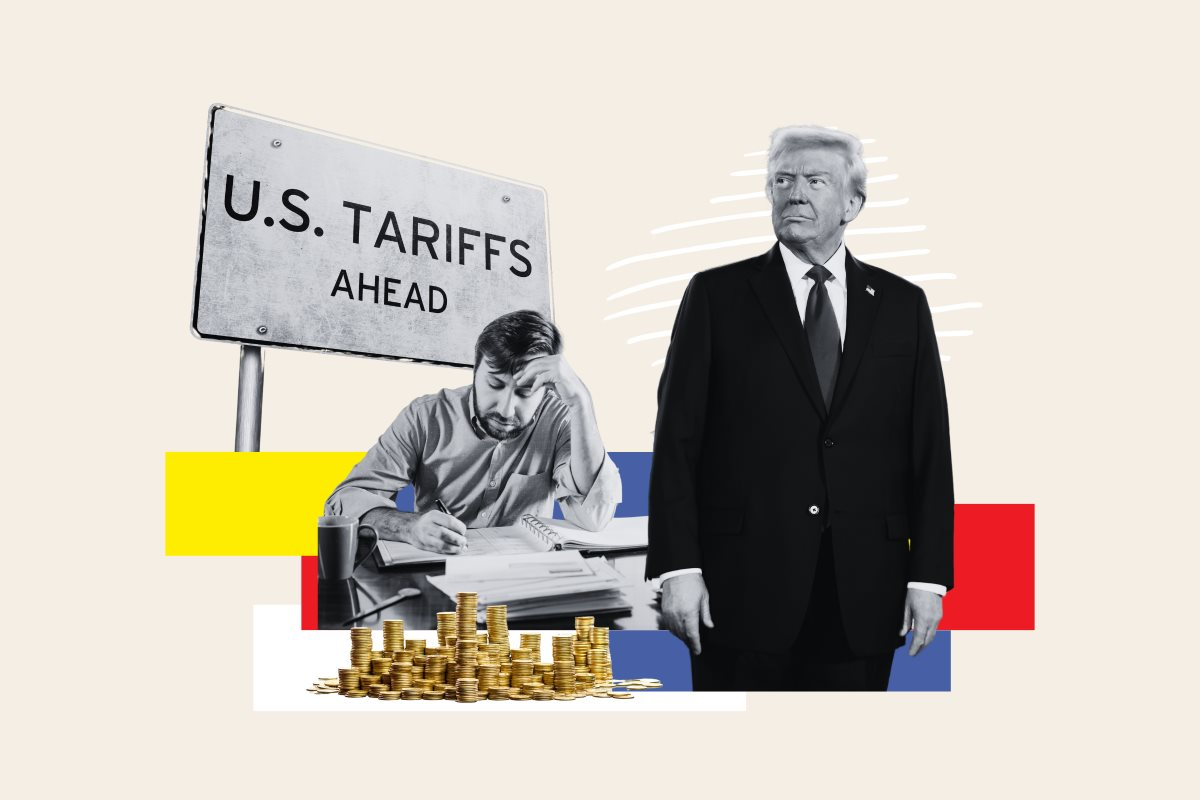Ukraine's NATO Aspirations: Trump's Perspective And Implications

Table of Contents
Trump's Stance on Ukraine's NATO Membership
Trump's public pronouncements and actions regarding Ukraine's NATO bid were marked by a distinct skepticism, often bordering on outright opposition. This contrasted sharply with the generally supportive stance of previous US administrations. His criticisms extended beyond Ukraine, encompassing a broader critique of NATO's efficacy and the perceived unfair burden it placed on the United States.
- Specific quotes/examples: Trump frequently questioned the value of NATO, suggesting it was "obsolete" and that member states were not contributing their fair share. He also expressed doubts about the benefits of expanding NATO eastward, a policy shift with significant implications for Ukraine's aspirations.
- Transactional approach: Trump's transactional approach to foreign policy, prioritizing bilateral deals over multilateral alliances, directly influenced his attitude toward Ukraine's NATO membership. He seemed more interested in negotiating individual agreements with Russia than upholding collective security commitments through NATO.
- Wavering/Inconsistency: While his skepticism was consistent, there were instances of perceived wavering in his public statements. This inconsistency further complicated the situation for Ukraine and its allies, creating uncertainty about the level of US support.
Geopolitical Implications of Trump's Perspective
Trump's perspective had significant geopolitical ramifications, particularly for Ukraine's security and the transatlantic relationship.
- Increased vulnerability for Ukraine: The perceived lack of unwavering US support under Trump increased Ukraine's vulnerability to Russian aggression. This uncertainty emboldened Russia and undermined Ukraine's efforts to deter further incursions.
- Strained relationships within NATO: Disagreements regarding Ukraine's NATO membership created friction within the alliance, exposing divisions among member states and weakening the overall cohesion of the organization. Trump's rhetoric further exacerbated these existing tensions.
- Potential for increased Russian aggression: Trump's apparent willingness to engage in direct negotiations with Russia without fully considering the interests of its allies, including Ukraine, created a perception of weakness that emboldened Russia to pursue more assertive policies in the region.
Domestic Political Implications within the US
Trump's position on Ukraine's NATO aspirations also had significant domestic political implications within the United States.
- Impact on US public opinion: His rhetoric influenced public discourse surrounding NATO and Ukraine, contributing to a climate of uncertainty and division on these crucial foreign policy issues.
- Influence on foreign policy debates: The debate over Ukraine's NATO membership became a focal point of broader discussions on US foreign policy towards Eastern Europe and the future of the transatlantic alliance.
- Effect on presidential election campaigns: The issue played a role in presidential election campaigns and debates, highlighting the differing views within the Republican party and across the political spectrum.
Comparing Trump's Approach to Previous Administrations
Trump's approach to Ukraine and NATO starkly contrasted with the policies of previous US administrations.
- Obama-era policies: The Obama administration consistently supported Ukraine's Euro-Atlantic aspirations and actively worked to strengthen NATO's collective defense posture.
- Bush administration's approach: The Bush administration also generally supported NATO expansion, albeit with a focus on specific conditions and regional considerations.
- Consistency in US foreign policy: Trump's approach marked a significant departure from this generally consistent bipartisan support for Ukraine's aspirations and NATO enlargement. This inconsistency created uncertainty and undermined long-standing alliances.
The Future of Ukraine's NATO Aspirations
The future of Ukraine's NATO aspirations remains uncertain, heavily influenced by Trump's legacy and the ongoing geopolitical turmoil.
- Impact of the ongoing conflict: The ongoing conflict in Ukraine has dramatically altered the geopolitical landscape, strengthening support for Ukraine's NATO membership among many Western nations.
- Shifting geopolitical alliances: The war has led to a reassessment of alliances and security partnerships, with increased emphasis on collective defense and deterrence.
- Potential pathways: While immediate NATO membership remains a complex issue, various pathways toward closer integration with NATO, potentially including enhanced partnerships and increased military cooperation, remain possible options for Ukraine.
Conclusion
Donald Trump's presidency significantly impacted Ukraine's NATO aspirations, leaving a legacy of uncertainty and division. His skepticism towards NATO, his transactional approach to foreign policy, and his inconsistent rhetoric created vulnerabilities for Ukraine and strained relations within the transatlantic alliance. The domestic political ramifications were equally significant, influencing public opinion, shaping foreign policy debates, and impacting presidential campaigns. Understanding Trump's perspective is crucial to comprehending the complex geopolitical landscape surrounding Ukraine's ongoing efforts to secure its future within the Euro-Atlantic community. We encourage further research and discussion on Ukraine's NATO aspirations and its evolving implications, exploring resources and articles that provide deeper insights into this critical issue.

Featured Posts
-
 Florida Vacation Spot Cnn Anchors Top Pick
Apr 26, 2025
Florida Vacation Spot Cnn Anchors Top Pick
Apr 26, 2025 -
 Anchor Brewing Company To Shutter What Happens Next
Apr 26, 2025
Anchor Brewing Company To Shutter What Happens Next
Apr 26, 2025 -
 Trumps Tariffs Ceo Concerns And Consumer Impact
Apr 26, 2025
Trumps Tariffs Ceo Concerns And Consumer Impact
Apr 26, 2025 -
 Ftc Launches Probe Into Open Ai And Chat Gpt Key Questions Answered
Apr 26, 2025
Ftc Launches Probe Into Open Ai And Chat Gpt Key Questions Answered
Apr 26, 2025 -
 Sinners How Cinematography Showcases The Mississippi Deltas Expansive Landscape
Apr 26, 2025
Sinners How Cinematography Showcases The Mississippi Deltas Expansive Landscape
Apr 26, 2025
